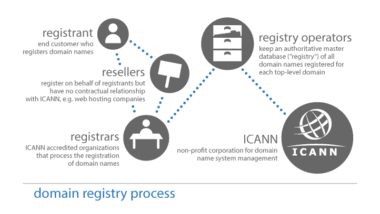In this article, you will learn about the importance of domain names and who owns them. We will discuss Timely Domains, a prominent domain name investment company, and their expertise in acquiring, selling, and managing premium domain names. You will also find information about Timely Domains’ domain acquisition strategy, including brandable domains, exact match domains, and expired domains. Additionally, we will outline their domain selling approach, which includes premium listings, transparent pricing, and personalized support. Finally, we will highlight the reasons why you should choose Timely Domains, including their vast selection, expert knowledge, secure transactions, and industry reputation.
Who Owns Domain Name
Who owns a domain name? This question is often asked by individuals and businesses who are considering investing in a domain name for their online presence. The answer is not as straightforward as one might think, as there are several parties involved in the ownership of a domain name.
When you register a domain name, you become the registrant or the legal owner of that domain name. However, it’s important to note that owning a domain name does not give you full control over that domain. Instead, you are given the right to use the domain name for a specified period of time, usually in increments of one to ten years, depending on the registration period you choose.
The entity that manages and controls the registration of domain names is known as a domain registrar. Registrars are accredited by a governing body known as the Internet Corporation for Assigned Names and Numbers (ICANN) and are responsible for recording and updating the ownership information of domain names in a central database called the domain name registry.
The domain name registry maintains a record of all registered domain names and their respective owners. This information is publicly accessible through a WHOIS database, which allows anyone to lookup the ownership details of a domain name.
While the registrant is technically the legal owner of the domain name, there are instances where the actual control and management of the domain name is delegated to another party. For example, if you register a domain name with a hosting provider, they may take care of the technical aspects of managing the domain, such as DNS configuration and website hosting.
In some cases, businesses may choose to register a domain name under the name of their legal entity, such as a corporation or LLC. This helps to establish a clear ownership structure and protect the brand identity associated with the domain name. However, it’s important to note that even if a domain name is registered under a business entity, it is still ultimately owned by an individual or group of individuals within that entity.
Additionally, it’s worth mentioning that domain names can also be bought and sold, just like any other asset. If you no longer wish to use a domain name or see an opportunity to profit from its sale, you can transfer ownership to another party through a domain name marketplace or broker.
In summary, while the registrant is considered the legal owner of a domain name, ownership does not necessarily equate to full control. The actual management and control of a domain name can be delegated to a hosting provider or other third-party service provider. It’s also important to note that domain names can be bought and sold, allowing for the transfer of ownership between parties. So, while you may be the owner of a domain name, the actual control and management of that domain name can vary depending on your specific circumstances and arrangements with service providers.




